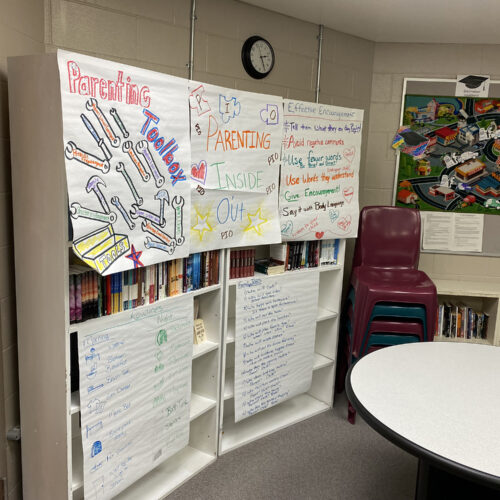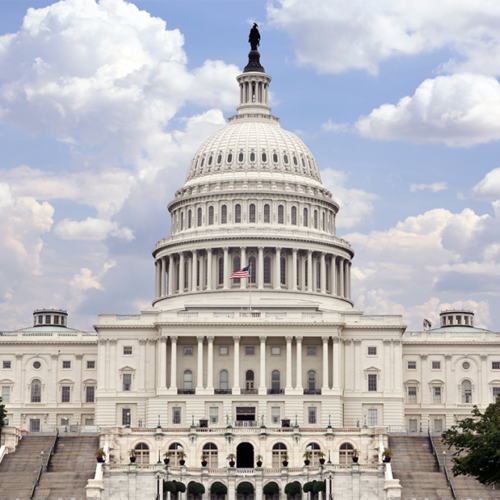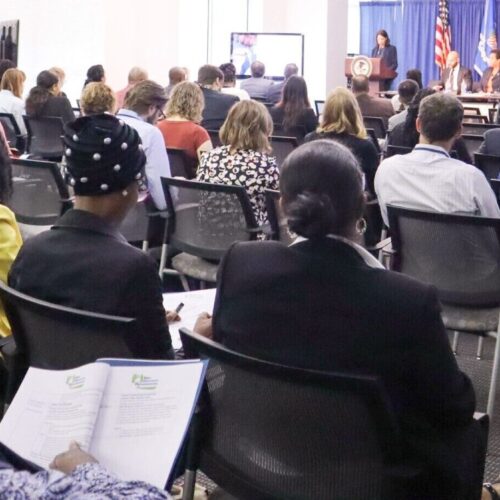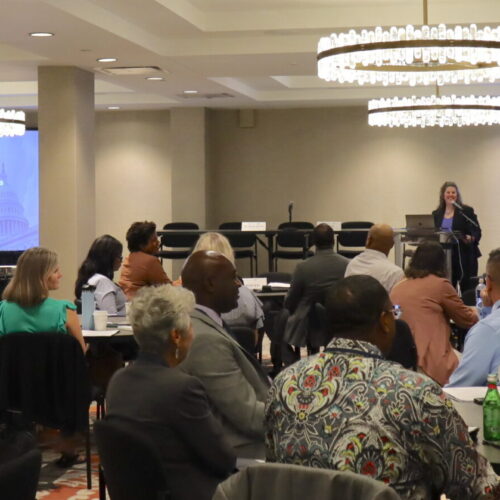
A chief focus of the Federal Interagency Reentry Council is to remove federal barriers to successful reentry so that individuals who have served their time and paid their debts are able to compete for a job, attain stable housing, support their children and their families, and contribute to their communities.[i] Civil legal assistance can often play a critical role in addressing barriers to successful reintegration into the community. Assistance in securing an occupational or driver’s license, expunging criminal records or correcting inaccurate criminal record reports, removing obstacles to housing and employment, addressing violations of the Fair Credit Reporting Act, and creating and/or modifying child support orders are all legal services that can help stabilize the lives of individuals and their families.
The Department of Justice’s Access to Justice Initiative, along with the Legal Services Corporation (the largest federal funder of civil legal aid), have begun to collaborate with federal agencies working to promote access to health and housing, education and employment, and the family stability of the population exiting incarceration or supervision. As a result, several agencies have expanded outreach and education efforts regarding the role legal aid can play in supporting successful reentry, and issued new guidance or grant solicitation language clarifying the use of grants funds for legal services. The Access to Justice Initiative and the Legal Services Corporation have also been invited to make presentations at new grantee orientations in order to educate grantees about how legal aid can improve outcomes for the reentry population. In addition, they have presented partnership opportunities with federal grantees to national audiences of legal service providers.
Recent developments include:
Department of Justice
Through a number of its bureaus, the Justice Department’s Office of Justice Programs administers Second Chance Act (SCA) grant programs designed to help communities develop and implement comprehensive and collaborative strategies that address offender reentry and recidivism reduction.
The Department of Justice’s Office of Justice Programs has issued guidance to SCA grantees, which clarifies the wide range of legal services that may be an appropriate use of funds where such services further the SCA’s purpose to “break the cycle of criminal recidivism, increase public safety and help states, local governments, and Indian tribes better address the growing population of criminal offenders who return to their communities and commit new crimes.” This guidance, distributed at the 2012 Second Chance Act Conference, is posted on the DOJ’s website here.
Bureau of Justice Assistance 2013 SCA grants including the Second Chance Act Technology Career Training Program for Incarcerated Adults and Juveniles and the Second Chance Act Adult Mentoring and Transitional Services for Successful Reentry Program now incorporate the guidance language. Similarly, the Office for Juvenile Justice and Delinquency Prevention is clarifying the allow ability of funds for legal services in grants such as in this language in the recent Second Chance Act Juvenile Reentry Program solicitation:
Resources for Civil Legal Aid. Civil legal assistance can often play a critical role in addressing barriers to successful reintegration. An allowable use of Second Chance Act funds for juvenile reentry services includes referral to and payment of legal services related to the purpose of the grant, such as securing a driver’s license, expunging criminal records, litigating inappropriate denials of housing or employment and violations of the Fair Credit Reporting Act, creating and/or modifying child support orders, and other family law services that help stabilize individuals and families.
Department of Labor
The Department of Labor’s (DOL) Employment and Training Administration administers more than $80 million in grants for job-training programs that help individuals with criminal records or other hard-to-employ youth and adults secure employment. Beginning in 2012, grant solicitations for the Reintegration of Ex- Offenders (RExO) Adult Generation 5, Serving Young Adult Ex-Offenders through Training and Service-Learning, Serving Adult and Youth Ex-Offenders through Strategies Targeted to Characteristics Common to Female Ex-Offenders, and Serving Juvenile Offenders in High-Poverty, High-Crime Communities incorporated explicit language that explains how grantees can utilize DOL grant funds for payment of legal services related to the purpose of the grant, such as securing a driver’s license, expunging criminal records, and creating and/or modifying child support orders
The new 2013 Face Forward Serving Juvenile Offenders Grants program requires grantees to collaborate with non-profit legal services providers in order to improve the long-term labor market prospects of both court-involved youth prior to adjudication and juvenile offenders. Legal assistance related to the grant includes “expunging juvenile records, securing a driver’s license, creating and/or modifying child support orders and helping victims of domestic violence by obtaining protective and restraining orders.”
Department of Veterans Affairs
Veterans are a significant but underrepresented group in the criminal justice system. An estimated one in every 10 criminal defendants and inmates has served in the U.S. military.[ii] Some veterans with criminal histories become homeless once they reenter society.
The Department of Veteran Affairs (VA) administers the Supportive Services for Veteran Families (SSVF) Program that aims to improve housing stability for very low-income veteran families. SSVF grantees provide eligible veteran families with outreach, case management, and assistance in obtaining assistance and other benefits. Studies by the VA confirm the need for legal services for veteran families. The VA’s 2011 CHALENG Report concluded that three of the top ten unmet needs of homeless veterans are legal-based and include legal assistance for child support issues, legal assistance for outstanding warrants/fines, and financial assistance to prevent eviction/foreclosure. Moreover, other top ten unmet needs may also have a legal component, some of which may be relevant to veterans with criminal records. For example, other high needs areas such as “family reconciliation assistance” may involve securing a divorce or child custody arrangements, “credit counseling” may involve legal resolution of Fair Credit Reporting Act problems, and “welfare payments” may require legal help with proper documentation or appealing an improper denial.
***
Legal assistance can have a profound impact on reducing barriers to employment, housing, benefits, and other obstacles for individuals with a criminal history. The work of the Access to Justice Initiative and the Legal Services Corporation, along with agency partners, builds upon a series of federal efforts to address barriers to reentry. Under the leadership of the Attorney General various federal agencies have come together as the Federal Interagency Reentry Council. Click here to learn more about the Reentry Council.
For more information about how legal aid programs can support SCA goals and grantees, please contact the Access to Justice Initiative at the U.S. Department of Justice at (202) 514-5312.
s one of the first points of contact in the criminal justice system, sheriff’s offices and their correctional…
Read MoreThe CSG Justice Center recently held a briefing on Capitol Hill with members of Congress and other experts…
Read More Minnesota Department of Health Leads Cross-County Collaboration to Support Families Impacted by Incarceration
Minnesota Department of Health Leads Cross-County Collaboration to Support Families Impacted by Incarceration
s one of the first points of contact in the criminal justice…
Read More Congressional Briefing Highlights the Impact of the Second Chance Act
Congressional Briefing Highlights the Impact of the Second Chance Act
The CSG Justice Center recently held a briefing on Capitol Hill with…
Read More Federal, State, and Local Leaders Gather for First-Ever National Reentry Housing Symposium
Read More
Federal, State, and Local Leaders Gather for First-Ever National Reentry Housing Symposium
Read More
 Biden Signs Six-Bill Spending Package Funding Key Criminal Justice Programs
Biden Signs Six-Bill Spending Package Funding Key Criminal Justice Programs
On March 9, 2024, President Joe Biden signed a $460 billion spending…
Read More











